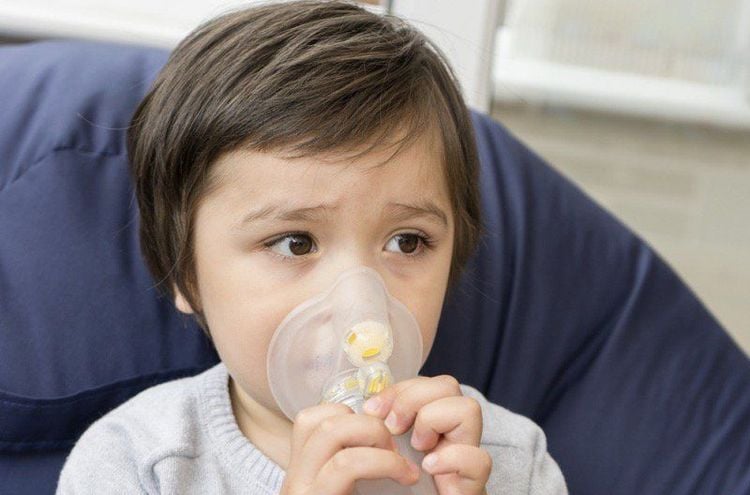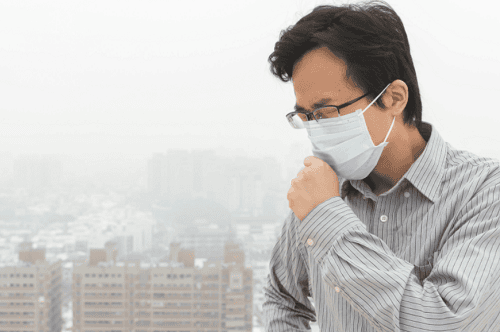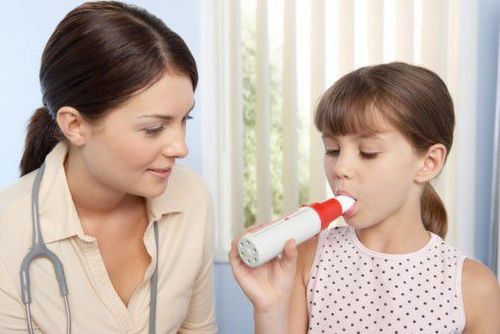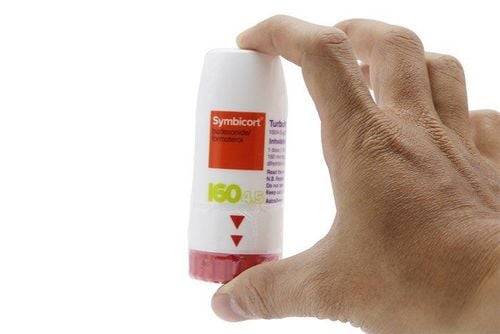This is an automatically translated article.
The article was professionally consulted by Doctor Tran Thi Diem Trang - Respiratory Internal Medicine Doctor - Department of Medical Examination & Internal Medicine - Vinmec Central Park International General Hospital.Asthma can affect anyone with no specific cause, but there are many factors that increase the risk. Avoiding risk factors for the disease is essential in preventing flare-ups of asthma symptoms.
1. Overview of bronchial asthma
Asthma is a chronic disease of the respiratory system. During an asthma attack, the lining of the bronchial tubes becomes swollen, inflamed, and easily irritated. Constriction and inflammation will narrow the airways, thereby reducing the flow of air in and out of the lungs. As the edema becomes severe, the airways will narrow more and more. At this time, the patient will have to face wheezing and extremely uncomfortable breathing.Symptoms of bronchial asthma are very diverse. The following are the most common symptoms for people with bronchial asthma:
Cough, especially at night: Cough can come from sinus infections, colds... but if If the condition persists, coughs that occur mainly at night due to narrowing of the airways, it may be a sign of bronchial asthma.

2. Risk factors for asthma
Gender and asthma Asthma in children is more likely to occur in boys than girls because the tracheal tubes of boys are smaller than girls. This contributes to increased wheezing after colds or other contagious infections. The prevalence of asthma is about equal between men and women in their 20s. However, by the age of 40, women are more susceptible to asthma than men.
Atopic dermatitis and asthma Atopy's dermatitis is predisposed to the development of eczema, allergic rhinitis, allergic conjunctivitis, and bronchial asthma. Atopic dermatitis increases sensitivity to common allergens, especially everyday foods and the air.
Allergies associated with asthma Allergies and asthma often coexist. Allergens often cause bronchial asthma. One study found that levels of bacterial toxins called endotoxins, directly cause asthma symptoms. Allergens such as dog and cat hair, dirt, cockroaches and molds... are external factors that trigger asthma.
Environmental factors and asthma Air pollution such as smoke, mold and toxic fumes from house cleaning and painting can cause allergies and asthma. At the same time, environmental factors such as pollution, sulfur dioxide, NO2 gas, cold temperature and high humidity are all at risk of causing bronchial asthma.
Ozone, sulfur, and gas are pollutants that make people at risk of bronchial asthma prone to wheezing, shortness of breath, and fever.
Climate change can also cause asthma in some people. Cold air clogs the trachea and increases mucus production. Increased humidity can also make breathing difficult for many people.

Factors of obesity and asthma Some studies show that asthma is more common in obese people. Being overweight makes it difficult to control asthma and reduces the effectiveness of asthma medications when used.
Asthma in pregnancy Smoking during pregnancy reduces lung function in neonates. Premature birth also increases the risk of asthma in young children.
In addition to being careful about the risk factors for asthma during pregnancy, you should visit your doctor regularly for timely diagnosis and treatment. Depending on the condition of each person, the doctor will prescribe the appropriate treatment drugs.

3. Prevention of bronchial asthma
Wear a mask every time you go out: The air is becoming more and more polluted and toxic, which is the cause of the increase in bronchial asthma. So a safe, easy to use and inexpensive measure that is recommended for you is to always wear a mask when going out. Keeping the body warm: The agent that easily makes you suffer from acute asthma attacks and other respiratory diseases is cold air. Therefore, every time the weather changes or becomes cold, you should keep your body warm. Abstain from foods that cause allergies: For asthma as well as other diseases, some food groups are not recommended for patients because they can cause adverse chemical reactions when interacting. with drugs or other pathogens. Caution when using drugs: The principle when using drugs to treat any disease is to strictly adhere to the regimen that the doctor has set out for the patient. Absolutely do not arbitrarily buy drugs and use the wrong time and dose, in order to avoid unfortunate consequences and complications that may occur to the health and life of the user. Aspirin should not be used; If necessary, choose Acetaminophen group. When you go to another doctor or buy medicine, you need to declare that you have asthma. Avoid chemicals and strange odors: Do not leave strong odors in the house, Do not burn incense, Do not use smelly items. When an asthmatic is at home, do not use strong detergents, spray insecticides, paint, or cook foods with strong odors. Clean the house before asthma patients come home Stay away from smoke: Tobacco has a lot of harmful substances and affects people who directly smoke and those who unfortunately breathe in smoke. This will be aggravated if you are a person with a history of bronchial asthma. Some chemicals in cigarette smoke irritate the lining of your airways, so your asthma attacks can come back and get worse.
Vinmec Times City International Hospital now has an Asthma Screening Package to help screen and detect the disease early to promptly control and treat the disease and perform clinical examination, take medical history, measure respiratory function respiratory examination, ENT examination, bronchial asthma screening.
When registering for the bronchial asthma screening package, customers will receive:
01 appointment with an Allergist - Clinical Immunology 01 screening tests: Measurement of respiratory function Aspiration Measurement of FeNo Endoscopy otorhinolaryngology Allergen testing Dr. Tran Thi Diem Trang has more than 10 years of experience in the treatment of Respiratory diseases. The doctor used to hold an important position at the asthma clinic of Pham Ngoc Thach hospital before working at the Department of General Internal Medicine - Vinmec Central Park International General Hospital as it is today.
Please dial HOTLINE for more information or register for an appointment HERE. Download MyVinmec app to make appointments faster and to manage your bookings easily.














